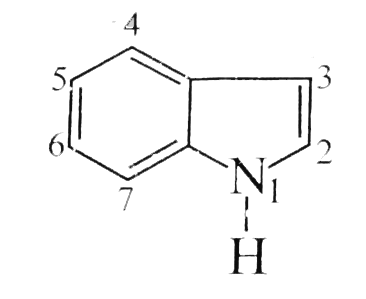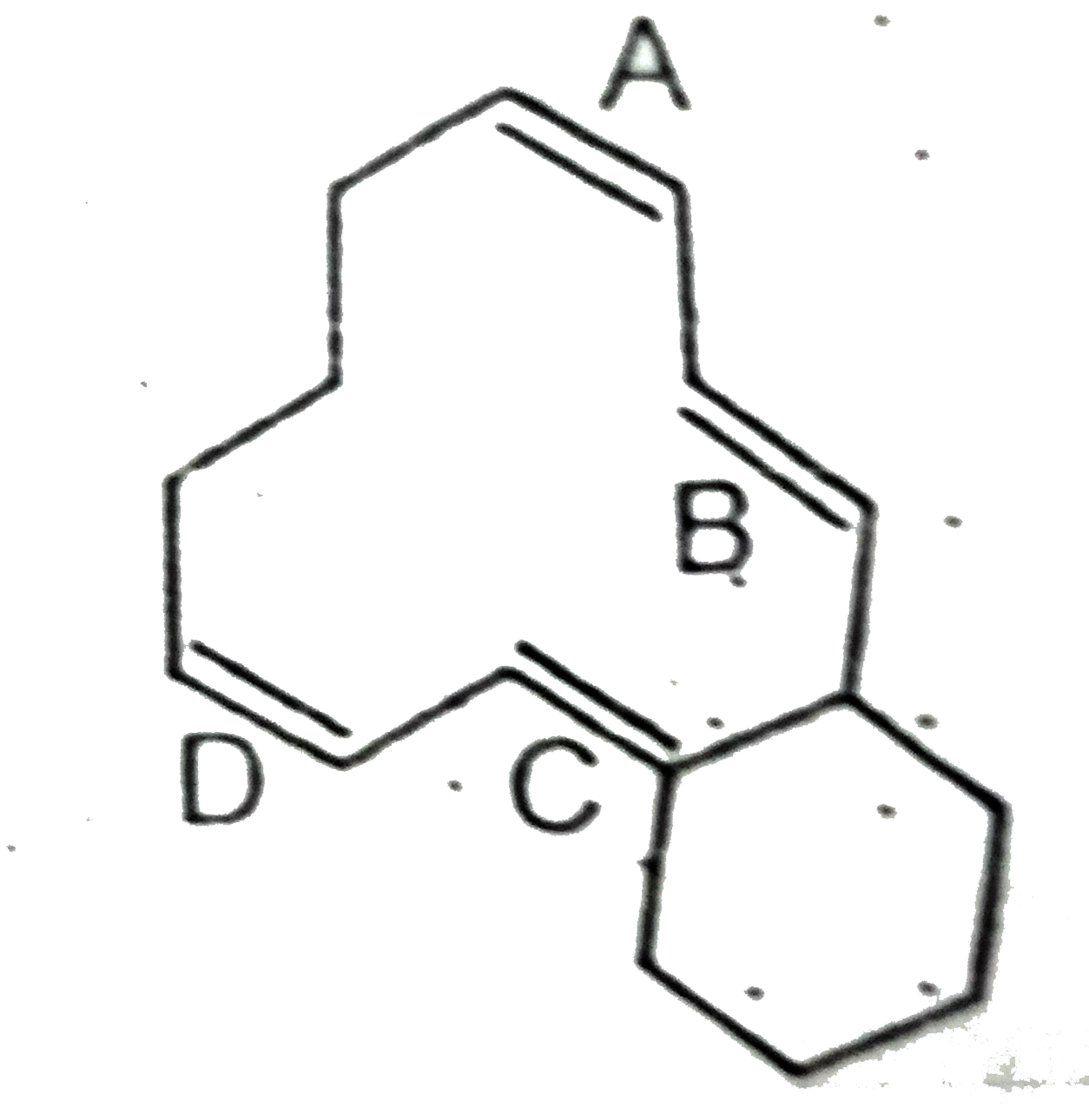Which of the following metioned positons in the given compound is more reactive towards electrophilic substituations?

A
3
B
2
C
5
D
6
Video Solution
Text Solution
The correct Answer is:a
Due to resonance , C−3 acquires a negative charge and SE reaction at C−3 takes place.

|
Topper's Solved these Questions
- AROMATIC COMPOUNDS AND ALKYL AND ARYL HALIDES BOOK - CENGAGE CHEMISTRY ENGLISHCHAPTER - AROMATIC COMPOUNDS AND ALKYL AND ARYL HALIDES EXERCISE - Exercises Single Correct
154 Videos
- AROMATIC COMPOUNDS AND ALKYL AND ARYL HALIDES BOOK - CENGAGE CHEMISTRY ENGLISHCHAPTER - AROMATIC COMPOUNDS AND ALKYL AND ARYL HALIDES EXERCISE - Exercises Assertion-Resoning Type
1 Videos
- AROMATIC COMPOUNDS AND ALKYL AND ARYL HALIDES BOOK - CENGAGE CHEMISTRY ENGLISHCHAPTER - AROMATIC COMPOUNDS AND ALKYL AND ARYL HALIDES EXERCISE - Exercises Multiple Correct Answers Type
15 Videos
- APPENDIX INORGANIC VOLUME 2BOOK - CENGAGE CHEMISTRY ENGLISHCHAPTER - APPENDIX INORGANIC VOLUME 2EXERCISE - Short Answer Type
179 Videos
- BIOMOLECULESBOOK - CENGAGE CHEMISTRY ENGLISHCHAPTER - BIOMOLECULESEXERCISE - Exercises Archives (Analytical And Descriptive)
8 Videos
Similar Questions
Knowledge Check
The correct order of reactivity towards electrophilic substitution is
Abenzene > phenol > benzoic acid > chlorobenzeneBphenol > benzene > chlorobenzene > benzoic acidCchlorobenzene > benzoic acid > phenol > benzeneDbenzoic acid > chlorobenzene > benzenegtphenol.
Which of the folliwng compounds is the most reactive towards electrophilic substitution reaction?
View Solution1-Bromopentane is more reactive towards
View SolutionWhich of the following compounds are not arranged in order of decreasing reactivity towards electrophilic substitution
View Solution
How many of the following compounds are more reactive than benzene towards electrophilic substitution.
View SolutionWhich double bond in the given molecule is most reactive towards an electrophile?

View SolutionWhich of the following is least reactive towards nucleophilic substitution?
View SolutionWhich of the following compounds is most reactive in electrophilic aromatic substitution?
View Solution

_CHE_E06_235_Q01.png)